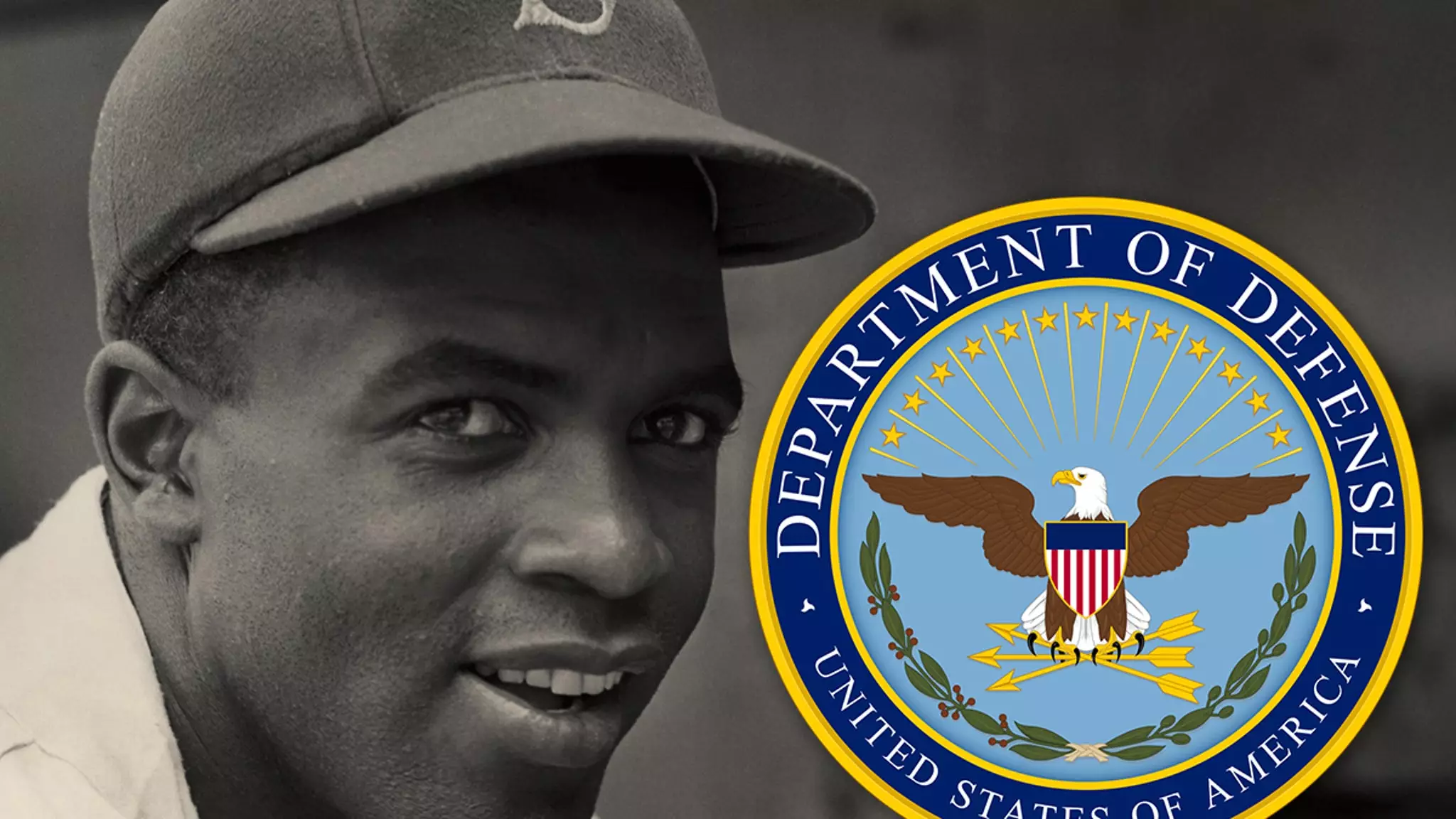The recent uproar surrounding Jackie Robinson’s feature on the Department of Defense’s (DoD) website serves as a striking reflection of contemporary debates regarding representation and inclusion within military narratives. Just a day after its initial removal, the story was reinstated amidst a firestorm of public discontent. The Defense Secretary’s stance against Diversity, Equity, and Inclusion (DEI) programs amplifies the sensitive nature of how historical figures like Robinson are portrayed in the context of military service. The conflicting messages from officials raise questions about the intentions behind omitting narratives that celebrate diverse contributions. Was this a misguided mistake or a deliberate attempt to suppress a significant figure who intersected civil rights with military valor?
Jackie Robinson: More Than a Baseball Legend
Often celebrated as a groundbreaking baseball player, Jackie Robinson’s legacy extends far beyond his athletic achievements. Drafted into the United States Army in 1942 during a time when racial segregation was pervasive, Robinson served as a second lieutenant in the 761st “Black Panthers” tank battalion. His military career, although overshadowed by his sports persona, revealed his commitment to fighting against racial injustice—not just on the baseball diamond, but also within the armed forces. It is imperative that we recognize Robinson, not merely as a sports figure but as a soldier whose story embodies resilience and courage against the backdrop of systemic discrimination.
The Pentagon’s Mixed Signals
The DoD’s conflicting messages surrounding the removal of Robinson’s story exemplify a larger, troubling trend regarding the balancing act of historical representation within governmental narratives. Pentagon Press Secretary John Ullyot revealed that while the Defense Secretary aims to distance the military from what is deemed “Woke cultural Marxism,” he simultaneously promotes appreciation for figures like Robinson. Why the dissonance? The removal and subsequent restoration of Robinson’s article suggest a chaotic environment where values of inclusion clash with administrative directives. This raises an essential inquiry: can a robust military narrative exist without acknowledging the diverse sacrifices that have shaped it?
Significance of Public Backlash
The speed with which the public rallied to restore Robinson’s story reflects a pressing desire for accountability and acknowledgment of historical contributions from marginalized communities. Through social media channels and various platforms, advocates for Robinson’s legacy were able to voice their concerns, thereby compelling a government entity to re-evaluate its actions. This incident illustrates the potency of public opinion in today’s digital age, showcasing how collective outrage can challenge institutional decisions and invigorate demands for a more inclusive historical narrative.
Beyond Military Service
Robinson’s contributions go beyond his tenure in the armed forces. As a pivotal figure in the American civil rights movement, he bridged the gap between segregated sports and social justice advocacy. His character, courage, and unyielding spirit remain relevant today, serving as a reminder of the work still needed to honor the sacrifices of those who fought against adversity. The ongoing discussions about his place within military history must not fade; instead, they should ignite conversations around broader themes of equity and recognition in all facets of American society.

